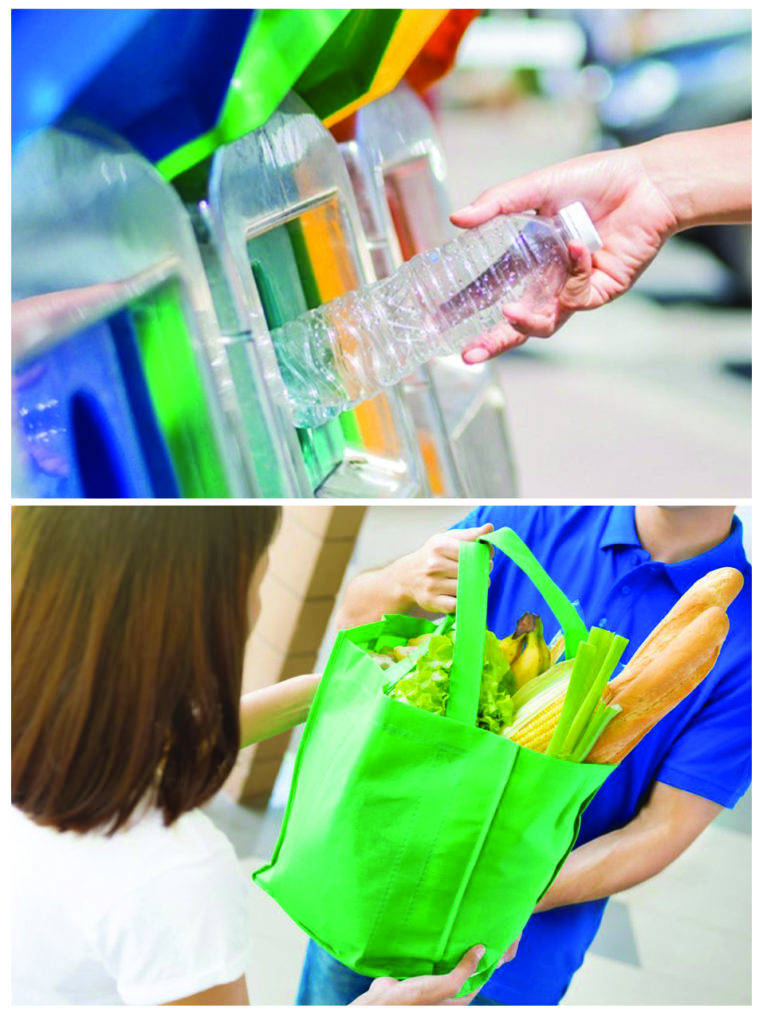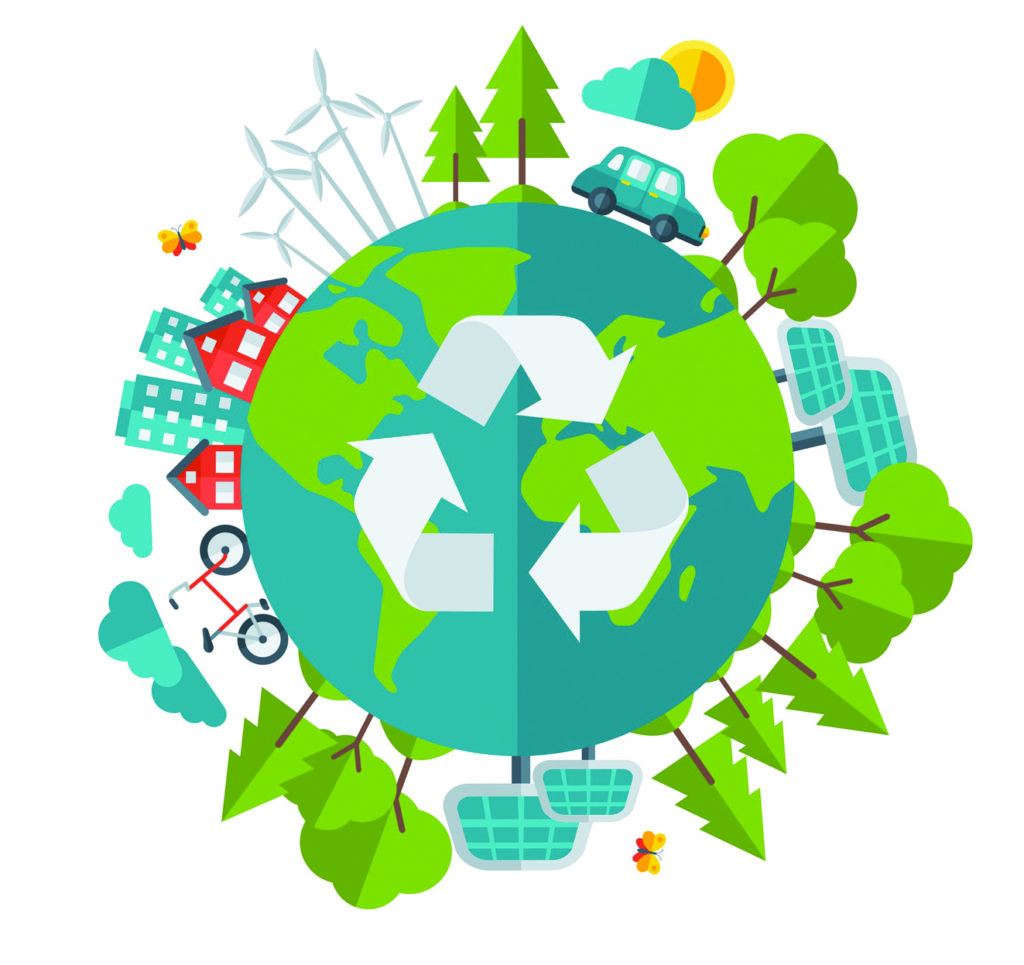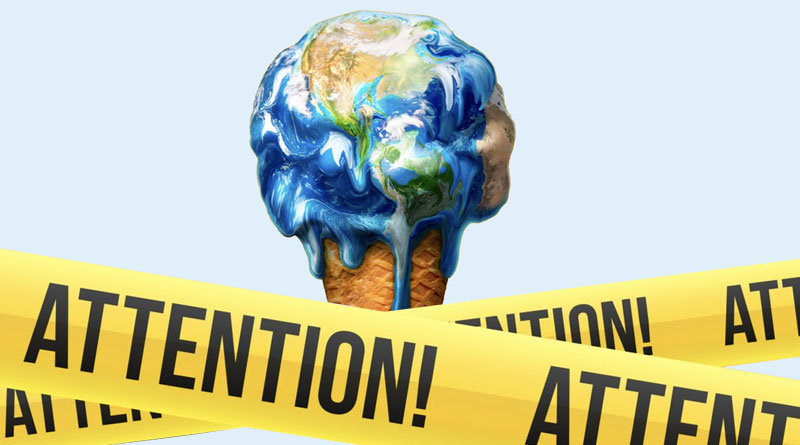Environmental Awareness: What All of Us can do Today
By: Diana Bello Aristizábal
DORAL, FL – 2019 has been a concerning year for the planet. According to a report by German reinsurer Munich Re, natural catastrophes have caused more damage in the first half of 2019 than in the same period last year. The material damages worldwide amount to 42 billion dollars.
This part of the world is no stranger to that reality. Only with the recent hurricane Dorian, which arrived in the Bahamas as category 5, 45 people died, hundreds more are missing, 70 thousand are lacking housing and the material damages add up to 7 billion dollars according to UN statistics.
“We are burning our future,” said UN High Commissioner for Human Rights, Michelle Bachelet, last Monday, September 9, during a Human Rights Council session on the responsibility that human beings have in this situation.
Yes, literally burning it as it happened with another major disaster: Amazon fires. According to forest ecologist Daniel Nepstad, these were caused by the thousands of farmers who burn their patches of felled forests.
“I think this year many landowners felt emboldened to cut down forests and burn without having a permit to do so, (…) because environmental authorities have reduced budgets and there is a greater tendency to ‘look the other way,’ ” said the expert in an interview held by Colombian magazine Semana.
But what is the truth behind this daunting picture and what responsibility do we humans have in hurricanes? The answer is as long as it is wide and equally controversial but it can be summed up in two words: Global warming.
 In this regard, it must be clarified that there is no unified consensus as scientists don’t seem to agree on whether global warming, which is heating the oceans 40 percent faster, is increasing the frequency of hurricanes or not.
In this regard, it must be clarified that there is no unified consensus as scientists don’t seem to agree on whether global warming, which is heating the oceans 40 percent faster, is increasing the frequency of hurricanes or not.
What they do agree on, its that this problem could be increasing their intensity, which brings devastation, diseases, and poverty.
We are already facing this locally. According to the Climate Change and Human Health report of the U.S. Global Change Research Program, The U.S. National Climate Assessment (2014 NCA) found that rising temperatures, the resulting increases in the frequency or intensity of some extreme weather events, as well as rising sea levels, and melting snow and ice are already disrupting people’s lives in the U.S.
This leads us to think that countries, institutions, legislators and in general the entire social structure must join forces to carry out actions that prevent not only climate change, but pollution, deforestation, land degradation, lack of resources and species extinction.
“We have to get together with other people in our jobs, schools, and neighborhoods to talk about these problems in a realistic way in order to find a living system that is sustainable and not focused on profit,” says the environmentalist artist Stephanie McMillen.
For McMillen, who used to be a cartoonist on climate change, there is no right answer when it comes to the social responsibility we have in the environment, but she thinks the most important thing is to get actively involved in the defense of habitats such as the Everglades where some companies have conducted drilling and fracking.
In addition to the above, in Doral Family Journal we believe that although it is difficult to talk about personal responsibilities in an issue that has seen the hand of large corporations and governments, we can all make small changes to contribute a granite of sand to this problem. Some of them are next.
Responsible consumption
According to María-Camila Calvache, environmental engineer and environmental scientist of Clark University, when disasters like the Amazon fires occur, people tend to blame decision-makers. However, for her, the change begins with oneself.
First, we must start by supporting companies that are eco-friendly and perform clean practices with the planet. “One step that goes in this direction is to buy organic food at supermarkets or from local organic farmers,” says María-Camila.
Organic food must be labeled as ‘USDA organic’ to be actually considered as such. Buying this type of food positively impacts health, as it has been proved that chemicals used in regular food are stored in the body causing illnesses in the long-term.
On the other hand, there is also a positive impact on the environment, because the pesticides used in crops damage the population of pollinators (bees, wasps, Diptera), as well as the water resource since these substances end up contaminating the groundwater that is connected to lakes.
As Stephanie McMillen explains, the use of synthetic fertilizers and pesticides is killing insects. “People are destroying their habitats and leaving them unable to survive. But they are key to the balance of nature and for basic activities as growing food,” she says.
It is also recommended to buy furniture in companies that have a sustainability certification and do not use Amazon wood. “Many furnitures have a label that says ‘Amazon wood ’. By buying them, we are supporting woodcutting in that area,” explains María-Camila.
Instead, when we buy items that have a sustainability certificate, we are supporting reforestation as companies that opt for this seal plant trees in the places where they cut down.
 Items that offer this warranty are labeled by the Forest Stewardship Council (FSC). Those who are interested in learning more about what to buy to protect forests can go to their website.
Items that offer this warranty are labeled by the Forest Stewardship Council (FSC). Those who are interested in learning more about what to buy to protect forests can go to their website.
Another way to contribute is to use cars less frequently and opt, instead, for the bicycle or carpooling. By doing so, we decrease our gasoline consumption and help to produce less greenhouse gases.
It is also important to turn off the lights at home when we don’t need them, unplugging and turning off unused electronic devices, and using LED bulbs that help reduce the carbon footprint in the environment as they consume less energy.
The LED-like work is also played by trees. For this reason, it is a good idea to plant a tree in the garden. “A single tree has the capacity to absorb a ton of carbon during the time it is alive,” explains María-Camila.
Likewise, we can reuse and recycle some of the things we have at home instead of replacing them. For example, we can give a new purpose to restaurant food containers or to glass jars of sauces and jams.
In this same line, we cannot ignore the importance of eliminating plastic of our lives, since the planet has long been suffering the effects of plastic consumption in the oceans and marine species.
One final recommendation is to adjust the temperature of the heating and air conditioning devices at home. “I know it is difficult to do this in extreme heat or cold seasons, but lowering or raising the thermostat at least 2º F can make a difference,” says María-Camila.
Preserving marine life
In addition to being responsible consumers, we have a great responsibility when making use of beaches and oceans. In order to take care of them, the most basic task and that people often forget to do is to collect and throw away in proper garbage cans the waste that comes in and out.
Practicing this habit is essential for the environment because the wind usually drags waste into the sea, and the plastic from soda and food is polluting the water and killing the marine fauna.
A less basic but more effective task could be to join organizations that do beach cleanups or that work towards preserving water resources, protecting the bay or saving marine life in order to volunteer or donate money. Locally, two alternatives are Miami Waterkeepers and South Florida National Parks Trust, among others.
If there is a recurrent problem of water pollution, one step to take is to contact local political representatives so that they can raise their voice in favor of the people with environmental agencies that manage and control these kinds of issues.
The purpose of following this path is to discover the source of water pollution to determine whether it comes from a corporation or from a leak in a water treatment plant. “A research process should be conducted to know if wastewater treatment plants are being managed correctly,” warns María-Camila.
To know how to contact a local representative, one option may be to reach out to environmental conservation organizations that exercise as ‘political voice’ before elected officials in order to promote actions and projects in favor of natural resources and soil. Florida Conservation Voters is one of them.

